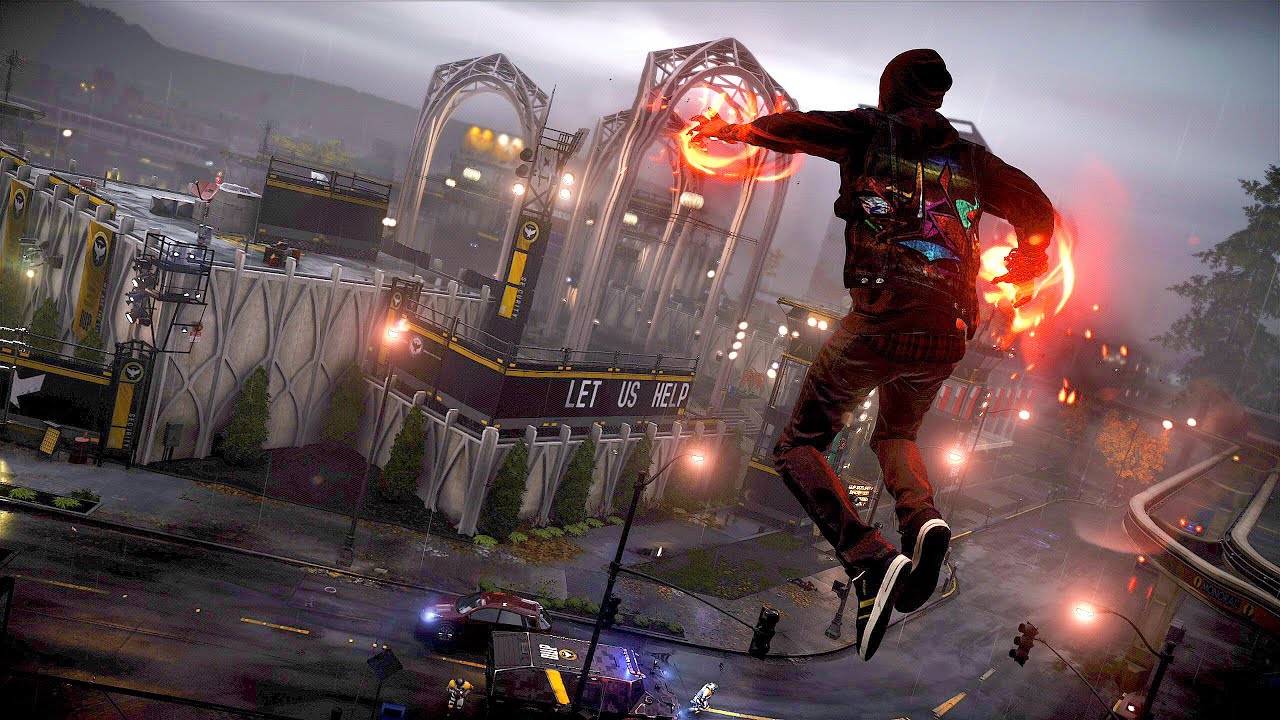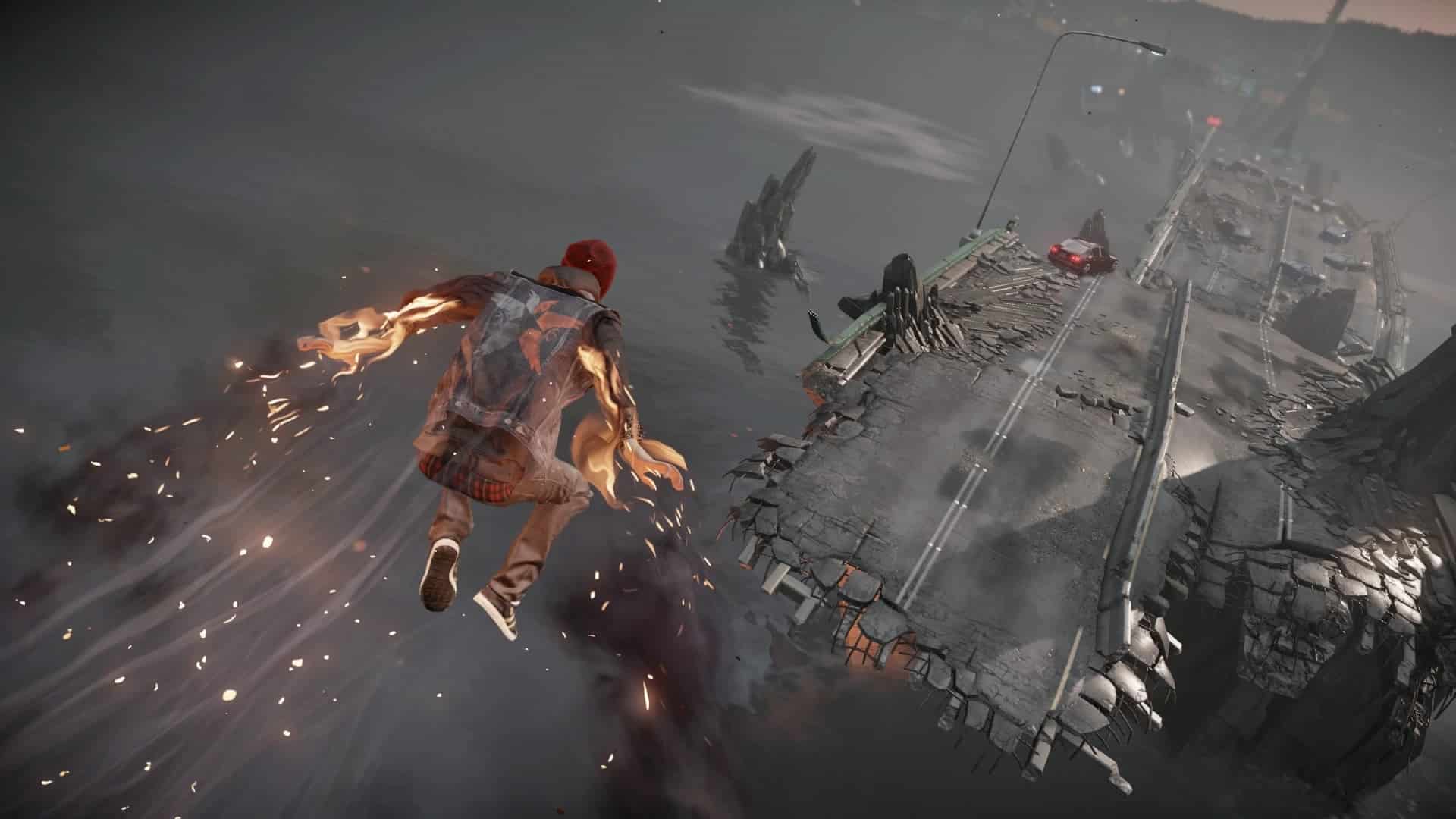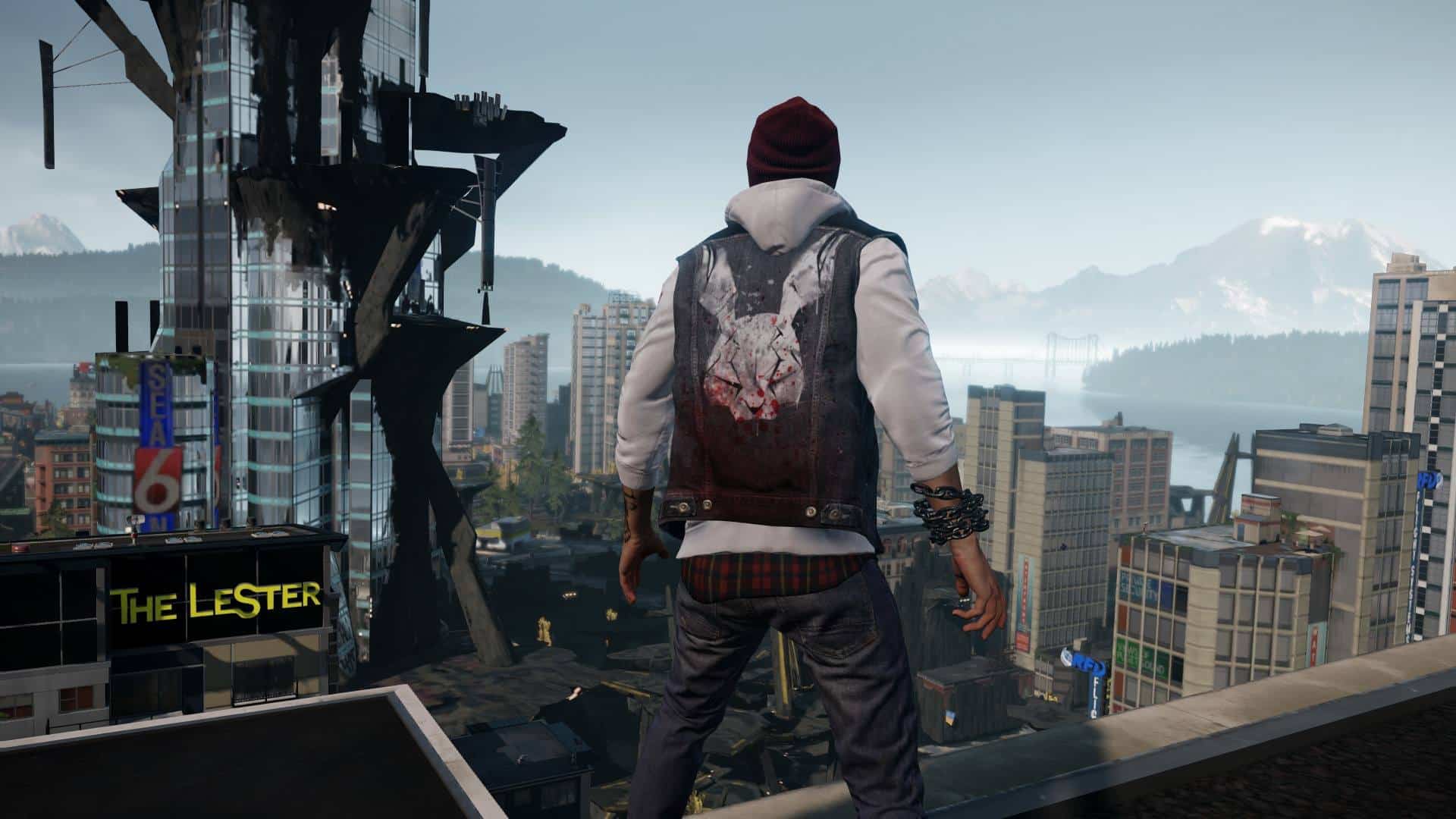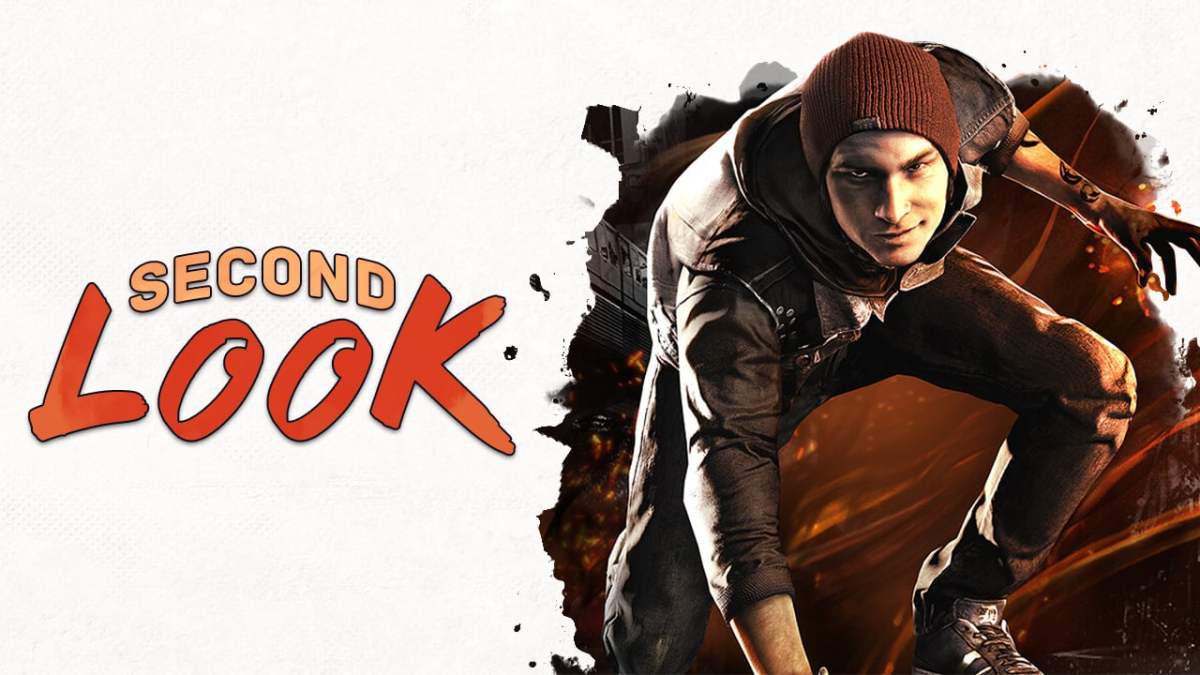It’s far from a quiet day in Seattle. Armed men are waving their weapons around, threatening anyone who might possibly be an “undesirable.” Unlike in a real-life situation, I have the chance here to subdue these men peacefully and ensure no one gets filled with hot lead just for existing. Adding weight to it all, protagonist Delsin Rowe is an Indigenous American, doubtless well aware of how bad things could turn for a minority on the receiving end of a hate group.
Except Infamous Second Son doesn’t see it that way, and it gives me negative karma for neutralizing the situation peacefully. According to Second Son, the ideal response is to turn a blind eye and walk the other way even though I’m a superhero who can stun everyone with a flick of his wrist and a cloud of smoke. Because who wants nuance in a video game about morality, am I right?
A topic like the morality of dissension is tricky to address, especially now. We live in an utterly maddening time and there is no easy way to talk about this stuff, but not talking about it or not letting games fully explore those sorts of themes isn’t the answer.
The world is not simple. There are shades to good and evil that blur based on how you grew up, were born, identify, and so on. For some it’s not even good and evil but order and chaos, and what each represents is infinitely more complex than a binary choice. Even a talented developer like Sucker Punch Productions is hamstrung though, because games can neither encapsulate all the options nor simplify things to the point that you can tie them off with a bow.

For crying out loud, Infamous Second Son has good and evil spray paint, where the good stencils are all cutesy nonsense and the evil stencils actively protest the D.U.P. occupying force trying to contain the rising number of Conduits (see: super-powered humans) in Seattle. Understand that the D.U.P. is treated as tyrants, their leader Augustine freely torturing, crippling, and even killing people to serve her own ends. And you can straight-up kill their agents without negative karma so long as you go about it certain ways, but protesting them in an aggressive way with art? That’s deemed evil.
There is never a justification for this, nor any rationale as to how the good or evil side activities work. Knocking a sign out of someone’s hands kills them because Infamous Second Son insists that counter-protesting has to be an inherently violent, evil action. Never mind that the protests you’re contesting are people wishing you’d be locked up or dead just for existing as Conduit. The optics on this element alone are worrying, but the fact Infamous Second Son forces a specific perspective without reasonable rationale is troubling to say the least.
The game’s standalone DLC, Infamous First Light, takes a more straightforward approach with gameplay and narrative. When zipping around as Fetch in the prequel story, you’re detached from a moral spectrum, allowed to instead freely choose how you go about resolving every story mission. While you have less say over the course of the story, it’s up to you to decide if Fetch would kill civilians and police as freely as she does drug dealers when unleashing her powers.
For contrast, Delsin’s “heroic” means of taking down enemies is crippling their weak points, wailing on them, or just blindly blowing them to hell with rockets. Swiftly taking them down with minimal damage and destruction is apparently just as evil as kicking a wounded enemy while they’re down. It just doesn’t line up, and it makes a morality statement out of play style preference.

There are scenarios where the game even blatantly encourages you to deal with a threat according to one specific moral alignment, regardless of how you’re playing the game. Where Fetch is free to be as merciful and destructive as she pleases, Delsin is constantly held back by a points system that makes less sense than the heaven and hell of The Good Place.
This is made all the worse by the fact that you earn karmic overload points by sticking to a specific moral code (or lack thereof), using all your good or evil to unleash a devastating attack that rarely feels in line with a heroic Delsin and is often far too contained for an evil Delsin. But hey, it’s Infamous, so we’ve got to have good and evil options for everything. The entire purpose of the game is to embody the comic book fantasy of hero or villain, but in order to do so in an efficient manner, it tosses out all nuance.
In the original two Infamous games, there was some reason for this. The original game’s choices were far more obviously aligned with heroism and villainy. You healed the sick or consumed them for power. Enemies were easy enough to restrain if you held yourself back, but launching them off a tall ledge was tons of fun if you were feeling vicious.
The sequel doubled down on this and subverted expectations by putting two new Conduits in the story as the angel and devil on your shoulder, only to have each represent order and chaos rather than cartoonish archetypes. By the end, the Conduit who represents order is willing to sacrifice all non-Conduits so that humanity can grow stronger, while the chaotic Conduit sacrifices her life to try and save the majority of humanity. The final decision wasn’t cut and dry good or evil, even if the game’s morality system strained against this.

In each case, that strain was obvious but acceptable. Infamous Second Son isn’t half as simple in its subject matter. You aren’t just choosing whether a generic self-insert character becomes Spider-Man or Magneto — you’re navigating hotbed issues relevant to this day. What worked once isn’t relevant in a world where we’re constantly unsure of what to say or whom to believe. I can’t overstate the need for more complex explorations in games if we’re to have them remain relevant in today’s society. We might not agree with them, sure, but outright dissonance on a fundamental level is a disservice to the themes presented.
Infamous Second Son presents a world where you need to do more than turn the other cheek to be a hero, and any sort of directed outrage is immediately toxic. It paints the ideal person as someone who just shuffles on through until some magic perfect moment arises that permits them to act. That’s not how the world works. Any modern game hoping to explore morality has to take more consideration of what it’s saying, not simply in its narrative, but on a mechanical level whenever morality is involved.
We’re past the days of helping the old lady cross the street or kicking her into traffic. If we backslide to that sort of blatant, after-school special moral discussion, then the medium as a whole will fail at discussing so many important topics we have to address. It’s not going to be easy, but that’s the point — it never will be.





